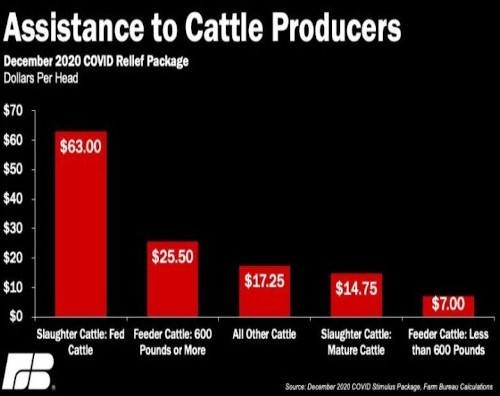Farmers who suffered losses due to market disruption from COVID-19 will receive additional relief payments under a spending package approved overnight by Congress.
Alabama Farmers Federation President Jimmy Parnell praised Sen. Richard Shelby, R-Ala., for his leadership in shepherding the package through the appropriations process while safeguarding the interests of agriculture and rural Alabama.
“On behalf of our 350,000 Federation member families, I want to personally thank Sen. Shelby for his persistence in securing passage of the FY ’21 appropriations bills and the COVID relief and stimulus bill,” Parnell said. “In his role as chairman of the Senate Committee on Appropriations, Sen. Shelby is in a key position to ensure the interests of Alabama farmers are at the top of the priority list in the appropriations process. It takes tremendous leadership and statesmanship to deliver bills in this period of partisan politics in Washington, and I am thankful Sen. Shelby is there to negotiate on behalf of all Alabamians and, in particular, our farmers.”
The package of bills included $900 billion in additional coronavirus relief, as well as $1.4 trillion to fund the government through Sept. 30. The measure passed the House of Representatives by a 359-53 vote, and Senate followed suit hours later with a 92-6 vote.
COVID-19 relief includes $13 billion for agriculture, with $11.2 billion set aside for payments to farmers. Producers of non-specialty crops who participated in the first two phases of the Coronavirus Food Assistance Program (CFAP) will receive an additional $20 per acre. Additional payments also will be provided to cattle producers based on CFAP inventory rates and weights.


The relief bill includes $1 billion for contract poultry producers who suffered losses, and provides assistance to the domestic cotton industry for crop losses due to insufficient processing access. It also includes funding for dairy producers, livestock processors, specialty crops, timber harvesters and rural broadband.
General provisions of the COVID relief and stimulus bill include direct payments to individuals and families; supplemental unemployment benefits; expansion of Paycheck Protection Program (PPP) loans; and $8 billion for COVID-19 vaccine distribution.
Direct payments were set at $600 per individual or $1,200 for joint filers, plus an additional $600 per child. Payments would begin phasing out for individual taxpayers with adjusted gross incomes of more than $75,000. Those drawing unemployment benefits will receive an additional $300 per week, down from $600 per week in the original Coronavirus Aid, Relief, and Economic Security (CARES) Act. Congress also allocated an additional $284 billion for PPP loans and set new eligibility and loan forgiveness guidelines.
Omitted from the final package were controversial measures including COVID-related liability protection for businesses, favored by the Republicans, and funding for state and local governments, favored by the Democrats.
While the COVID relief and stimulus package garnered most of the headlines, the Federation’s National Affairs Director Mitt Walker said passage of 12 appropriations bills in the omnibus package also is important to farmers.
“The annual agricultural appropriation bill builds upon programs prioritized by the Federation such as increased funding for agricultural irrigation systems and feral swine control efforts,” Walker said. “The bill also replenishes funding of the Wildfire and Hurricane Indemnity Program to ensure producers who suffered hurricane-related crop losses in 2018 and 2019 receive much-needed assistance.”
American Farm Bureau Federation President Zippy Duvall welcomed passage of the relief and spending package.
“We’re pleased that Congress understands the toll the pandemic continues to take on farmers, ranchers and rural Americans,” Duvall said. “Farmers who were left out of previous aid packages, or whose losses were far more devastating than recognized in initial aid, are grateful that their families will be helped, too. We recognize the need is great across our entire economy, and farm families will join the rest of America in our determination to recover from the hardships caused by the COVID-19 pandemic.”